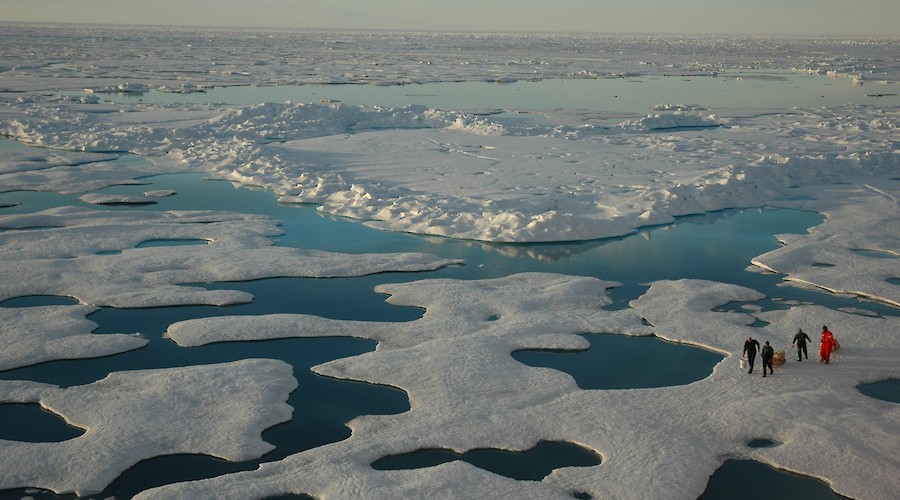Ocean explorations from Magellan to today in a changing climate

A panel of ocean scientists that participated in modern ocean exploration shares observations, footage, and insights about the little known oceans and implications to human society.
Five hundred years ago, in 1519, Magellan departed from Spain to find a West route to Asia. During their 3-year trip the expedition found new land, new species, and a brand new ocean he named Pacífico (Pacific Ocean). The Magellan expedition was as much about commerce as it was about exploration and science, a science revolution that Leonardo DaVinci started (2019 marks the 500 year anniversary of his death).
Since then, there has been a continuous effort to connect the Atlantic and Pacific oceans by sea. In the XIX Century, ocean voyagers adventured into the Earth’s poles as the new unexplored frontier on Earth. About 175 years ago, the Ross Expedition brought back the British Navy Ship HMS Terror from a successful three-year trip around the Antarctica. Soon after, Sir Franklin commanded the HMS Terror to the Arctic to complete the Northwest Passage, an ice-filled passage that could connect the Atlantic and Pacific Oceans. The two ships and the 127 sailors disappeared without a trace. It was not until 1906 that Roald Amundsen successfully navigated the NorthWest Passage by boat; it took them 3 years to cover the 900 mile trip.
In 2019, a new generation of explorers and scientists traced past expeditions into the Northwest Passage. Recent changes in climate have opened the passage from ice blockage during the summer and the commercial North connection between the Atlantic and the Pacific Oceans is now more possible than ever. The 2019 Northwest Passage Project documented how oceans and the Arctic habitat are rapidly changing, creating new opportunities and challenges between the world’s oceans and human society.
The panel formed by ocean scientists that participated in modern ocean exploration will share observations, footage, and insights about the little known oceans and implications to human society.
Participants
- Miquel González-Meler, Professor, University of Illinois at Chicago and Argonne National Laboratory
- Andrew King, Scientific Researcher and Head, Norway Institute Water Research (NIVA), Norway
- Frances Crable, PhD student, University of Illinois at Chicago
- David Clark, Emmy Winner Film Director, David Clark Inc